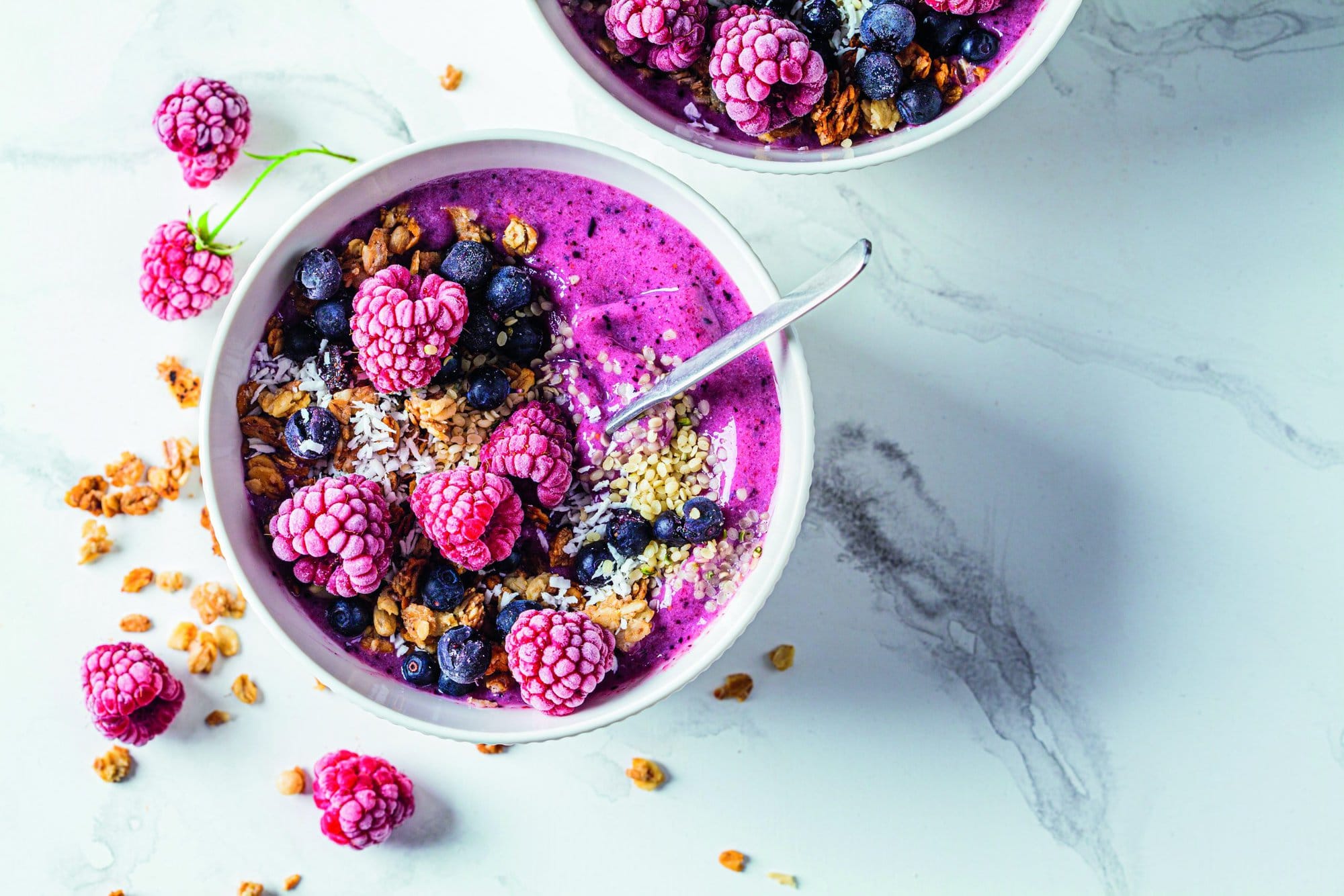
Simply the Best
10 simple nutrition strategies for women to feel their best. By Gamze Cakir
Reading time: 4 minutes
In the pursuit of feeling our best selves, it’s crucial to acknowledge the intricate interplay between our mental, physical and psychological wellbeing. A holistic approach to our overall health is gaining more and more attention in scientific communities. Neglecting any aspect of this delicate balance can throw us off course. Adopting simple yet science-backed nutrition strategies can help us achieve hormonal balance and an overall harmonised state of wellbeing. With that in mind, here are 10 simple nutrition strategies to help you feel your best:
Goodbye brain fog
Brain fog, that hazy cloud overshadowing our cognitive prowess, can severely impede productivity and hinder our journey towards feeling our best selves. When the fog lifts, a world of clarity emerges—tasks become smoother, decisions flow effortlessly, and solutions reveal themselves readily. Prioritising our brain health becomes imperative in our pursuit of overall wellbeing. Here are potent strategies to keep your thinking sharp:
1. B12-rich foods: Maintaining optimal B12 levels is paramount for robust brain health. With the growing popularity of plant-based diets, it's crucial to be vigilant about potential deficiencies. While meat, fish, and poultry are primary sources of B12, those embracing plant-based lifestyles can benefit from algae like spirulina and chlorella, edible mushrooms and fermented foods to bridge nutritional gaps. However, if you suspect a deficiency, consulting a healthcare professional for supplementation guidance is advised.
2. Antioxidant power: The bombardment of free radicals from sources like ultra-processed foods, air pollution, and stress wreaks havoc on our cognitive function through oxidative stress. Counteract this assault by integrating antioxidants into your diet. Several plants, green tea, leafy greens and fruits like berries are potent sources of these protective compounds, shielding your brain from the damaging effects of oxidative stress. If you cannot consume enough plant-based food, consider supplementing naturally.
3. Limit added sugar: Excessive sugar consumption not only wreaks havoc on our physical health but also sabotages cognitive function. Beware of hidden sugars lurking in processed foods as they can impair your ability to think clearly and focus. Instead, opt for whole, unprocessed foods whenever possible to minimise your added sugar intake and support optimal brain function. in the fight against fatigue. Here's how you can revitalise your body and keep fatigue at bay:
4. Go fresh whenever possible: Fresh, whole foods provide the essential energy our bodies need with minimal damage and effort. Opting for fresh produce ensures you're nourishing your body with vital nutrients and sustainable energy. Remember, when it's time to eat, it's time to fuel your body efficiently. Choosing the right type of fuel is crucial. Going for fresh, whole foods reduces the burden on your body's digestive system, preventing that sluggish feeling caused by processed foods.
5. Say no to simple carbs: Not all carbohydrates are created equal. Complex carbohydrates, found in foods like potatoes and whole grains, take longer for the body to digest and provide sustained energy. Conversely, simple carbs, such as cake, sweets and fizzy drinks harm our bodies and contribute to feelings of lethargy and sluggishness. By minimising your intake of simple carbs and focusing on complex carbohydrates, you can maintain steady energy levels throughout the day.
6. Intermittent fasting: Contrary to popular belief, skipping a meal now and then may not be detrimental to your health. One study suggested that intermittent fasting can offer numerous benefits, including increased energy and improved metabolic function. By allowing your body periods of rest from digestion, intermittent fasting may enhance energy levels and promote overall wellbeing. Consider incorporating intermittent fasting into your routine under the guidance of a healthcare professional to reap its potential benefits.
Emotional wellbeing
Our emotional wellbeing is closely linked to our overall sense of wellness. By managing hormone production and minimising stress-inducing cortisol while boosting mood-enhancing serotonin levels, we can cultivate a profound sense of calm and contentment. Here are some tips to nurture your psychological wellbeing:
7. Omega-3 fatty acids: Omega-3 fatty acids, found in abundance in fatty fish, nuts, and seeds, play an important role in supporting brain function and emotional balance. Research indicates that omega-3s not only contribute to overall cognitive health but also have a profound impact on mood regulation. Incorporating these essential fats into your diet can help alleviate symptoms of depression, anxiety and mood disorders. Furthermore, studies suggest that omega-3s may offer protective effects against neurodegenerative conditions like Alzheimer's disease, highlighting their significance in maintaining emotional wellness.
8. Tryptophan-rich foods: Tryptophan serves as a precursor to serotonin, often referred to as the ‘feel-good’ neurotransmitter due to its role in regulating mood and promoting feelings of happiness and wellbeing. Foods rich in tryptophan, such as eggs, soy, tofu, nuts and seeds provide your body with the building blocks necessary for serotonin production. By incorporating these foods into your diet, you can support optimal serotonin levels, enhancing your emotional resilience and overall sense of positivity.
9. Olive oil: Olive oil, renowned for its health-promoting properties, contains high levels of monounsaturated fats, which have been linked to numerous health benefits, including improved mood and mental wellbeing. Studies suggest that the consumption of olive oil may help alleviate symptoms of depression by modulating inflammatory processes and supporting brain health. By incorporating olive oil into your cooking and meal preparation, you can harness its potential to promote emotional wellness and cultivate a sense of inner peace.
Hydration
10. Hydration: This isn't just about quenching your thirst, it's about ensuring your body operates at its best. By treating hydration as a proactive task rather than a reactive response to thirst, you're supporting essential bodily functions and optimising your overall wellbeing. Incorporate regular sips of water, herbal tea or other natural beverages into your daily routine, setting reminders to prioritise hydration throughout the day. With hydration as a cornerstone of your wellness regimen, you're empowering your body to thrive and to be its best self.
Gamze Cakir is the founder of Wellnoa, a functional nutrition drinks brand created to help women get the extra nutrients, vitamins, and minerals they need from whole foods rather than supplements (wellnoa.com)





